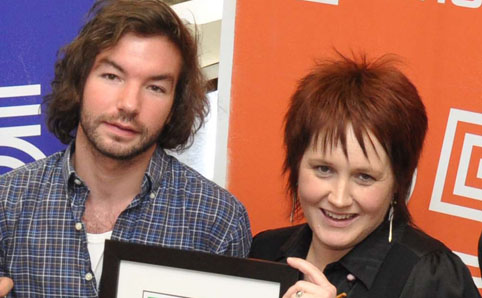Latest News Archive
Please select Category, Year, and then Month to display items
14 June 2024
|
Story Anthony Mthembu
|
Photo Suplied
 Jeremiah Hlahla, a UFS student completing his PhD in Botany at the University of Debrecen as part of an exchange initiative funded by the Erasmus+ Mobility Programme.
Jeremiah Hlahla, a UFS student completing his PhD in Botany at the University of Debrecen as part of an exchange initiative funded by the Erasmus+ Mobility Programme.
As part of an exchange initiative facilitated by the Erasmus+ Mobility Programme, Jeremiah Hlahla, a student at the University of the Free State (UFS), is nearing the completion of his PhD studies at the University of Debrecen in Hungary. Hlahla’s journey, which began in February 2024 and is set to conclude in July 2024, has been a remarkable learning opportunity. “As a first time-traveller to Europe, I have thoroughly enjoyed engaging with people from different countries and cultures,” he said.
The benefits of international collaboration
Hlahla is currently pursuing a PhD in Botany, focusing on plant stress physiology. “My current PhD project investigates the physiological, biochemical and morphological responses of vegetable-type soybean, or edamame, to combined drought and heat stress,’’ he explained. He considers the University of Debrecen the ideal institution to complete his research due to its extensive expertise and resources in similar projects. He noted that his colleagues at Debrecen conduct significant work on plant protection against biotic and abiotic stresses, including salt and drought stress, as well as proteins and amino acids in barley and other legumes.
Given the vast knowledge available on similar projects, Hlahla has found substantial engagement with his work at the University of Debrecen. “Upon arrival, I delivered an introductory lecture presenting my UFS project on the synergistic effects of combined drought and heat stress on the physiology and biochemistry of edamame. It was an engaging session as everyone could relate to my work and asked many questions,’’ he said.
Insights gained from the exchange
Hlahla has also gained valuable lessons that will assist him in his research career, including biotechnology and physiology tools. “I learned how to prepare samples and use high-performance liquid chromatography (HPLC) and reversed-phase ultra-high-performance liquid chromatography (UHPLC) to quantify proteins and amino acids,’’ he said. These techniques are beneficial not only for his current work but will also support future soybean research.
As his experience at the University of Debrecen nears its end, Hlahla reflects on the collaborations and friendships he has formed, which stand out as a significant highlight.
Another award proves quality of Architecture
2012-04-13
 |
|
Jurie Swart with Mrs Martie Bitzer, Head of the Department of Architecture.
Photo: Supplied
13 April 2012
|
The Department of Architecture can be proud of its students. Recently, Jurie Swart was honoured as regional winner of the Corobrik Architectural Student of the Year Award. He was also placed second nationally.
Jurie is an architect at the The Roodt Partnership in Bloemfontein.
Corobrik says in a media release: “Tomorrow’s architects set new standards at 25th Corobrik Architectural Student of the Year Awards. Achieving sustainable built environments with low impacts on the natural environment is becoming a universal goal. Energy usage in buildings is under the spotlight. Water-wise projects are most likely to get the go ahead. That is why an in-depth understanding of the environmental constraints and impacts of technologies on architectural solutions is becoming so important for students of architecture. It is the resolution of environmental issues that can be expected to drive architectural expression that will shape tomorrow’s buildings and the creation, extension and redevelopment of our towns and cities.”
Jurie Swart’s project, Borderline – mediated landscape, a Water Research Centre for the University of the Free State (Qwaqwa Campus), explores whether nature and architecture can amalgamate to become a hybrid solution in a vast landscape which has lost its reference to place and time.